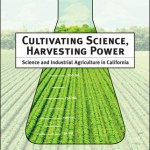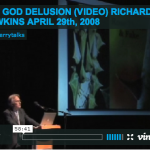The STS Compages
Is It Possible to Eat Sustainably at the University of Virginia?
Eating sustainably requires (a) that you come to some resolution about what "sustainable" means, (b) that you have the opportunity to choose so-defined sustainable foods, and (c) that the constraints of your lifestyle, geography, and socioeconomic context make it possible for you to pursue such an endeavor. Threading the needle between all of that is tricky business. Thus many have chosen to run experiments about it, or related to the larger theme, defined in various ways: the "week without" processed food; the "week without"…
This chart about the lack of resolution to some basic problems in Africa -- between solutions proposed in 1938 to those from 2005 -- fascinates me not only for the info it presents but for the range of responses it has elicited. It is a chart from a working paper by William Easterly, a professor of economics at NYU.*
Here is the abridged version posted by Easterly at this blog:
(
Click here
for the full version from Easterly's paper.)
Also see the interpretations of the data set at Reason.com and then at the blog Marginal Revolution. The lack of resolution to the above problems,…
Instead of me answering that, I wondered instead how other people have argued about the question. To be more specific, since I am interested in the role of scientific practice for defining the land, I wondered how people argued about whether or not science was better for agriculture. I wrote a book about it. It's called Notes from the Ground: Science, Soil, and Society in the American Countryside. I commented here a few months ago that the book was finally on its way. Although Amazon sales do not begin until October 20th (here is their link), the publisher has it officially listed for…
Pt. 1 | Pt. 2 | Pt. 3
---
Part 3 with Julie Sze, discussing her book Noxious New York, follows below. All entries in the author-meets-blogger series can be found here.
WF: What place did science play in the EJ issues of the communities you've studied? We've talked about tensions between expertise, technical knowledge, and lived community experience in other conversations. It's a vast subject, in fact, and I shouldn't cast this question so tidily. But for Noxious New York, where did scientific practices fit?
JS: Science played a large part in the story I told in New York City, a story…
Part 1 | Pt. 2 (below) | Pt. 3
---
Part 2 with Julie Sze, discussing her book Noxious New York, follows below. All entries in the author-meets-blogger series can be found here.
WF: Let's do this: I know we already brought up environmental justice before, but could you define it in your terms for the readers? In your use and experience, does it differ from environmental racism, does it differ from, say, an anti-toxics activism that some link to Love Canal and Lois Gibbs?
JS: That is a huge question in the book. I define environmental justice as the social movement that emerged in response…
Part 1 (below) | Pt. 2 | Pt. 3
---
The World's Fair is pleased to offer the following discussion about Noxious New York: The Racial Politics of Urban Health and Environmental Justice (MIT Press, 2007), with its author Julie Sze. Sze is an associate professor of American Studies at the University of California at Davis, an environmental justice scholar, and the founding director of the Environmental Justice Project at the John Muir Institute for the Environment.
Noxious New York "analyzes the culture, politics, and history of environmental justice activism in New York City within the…
Tim LeCain, a professor at Montana State (in Bozeman) and a talented scholar in environmental history and the history of technology ("envirotech"), has just published Mass Destruction: The Men and Giant Mines that Wired America and Scarred the Planet. Although I've not read it yet, I'm familiar with LeCain's work in general (having read prior work that is now part of the book). He's a solid scholar and a notable writer; this is important work.
I copy here from the Rutgers Press description of the book:
The place: The steep mountains outside Salt Lake City. The time: The first decade of the…
Alas, I have a book cover to share for Notes from the Ground! I'm pleased with it. I was even brought to use an exclamation point just there.
It happens, I know it, it happens, people judge these things by their covers. I don't say so to be cutesy or play the cliche. I'm just acknowledging it happens. I've done it. Not infrequently, in fact. The one for this book is a plate from the 1697 John Dryden translation of Virgil's The Georgics, one of his epics and the one that threads through the book underneath the cover. I'm excited to see it. Make posters, put it on your walls, behold,…
I realized of late that I am more a fan of Malcolm Galdwell's reviews than his articles. It's possible I've even poked fun of Gladwellian articles in the past ("I Dream in Malcolm Gladwell"). But oh boy did I enjoy his recent review of Chris Anderson's Free: The Future of a Radical Price. Anderson, the editor of Wired, puts forth an economic argument about the digital age -- all information wants to be free; all info in the digital age shall thus be free -- based on an impoverished concept of technology. In "Priced to Sell," Gladwell handily calls him out for it.
Anderson's primary…
Pt. I | Pt. 2 | Pt. 3
---
Part 3 with Martha McCaughey, discussing her book The Caveman Mystique, follows below. All entries in the author-meets-blogger series can be found here.
WF: So how is the use of evolutionary psychology to explain masculine actions not just quackery? Evolutionary biologists, and many who read science blogs, rightly announce and discredit the quackery of creationists or, more broadly, those who "deny" scientific truths. But, for the sake of argumentative symmetry, can one put that lens back onto evolutionary psychology? Besides the caveman issue, does that field…
Pt. I | Pt. 2 | Pt. 3
---
Part 2 with Martha McCaughey, discussing her book The Caveman Mystique, follows below. All entries in the author-meets-blogger series can be found here.
WF: How do you see the relationship between the academic fields of gender studies and science studies? And how has that relationship changed in the past two decades? I'm asking for a few reasons, but one of them is that I remember from graduate studies that many of the most persuasive accounts of the politics of science and technology came from feminist scholars.
MM: It's a big question, so I'll offer but a start…
The World's Fair is pleased to offer the following discussion about The Caveman Mystique: Pop-Darwinism and the Debates Over Sex, Violence, and Science (Routledge, 2007), with its author Martha McCaughey. McCaughey is a Professor of Sociology and the Director of Women's Studies at Appalachian State University.
Professor McCaughey's work fits at the intersections of gender, sexuality, science, technology, social movements, and the media. I first met her during her tenure at Virginia Tech, where she distinguished herself as a leading feminist scholar in science studies, an atypically…
Pt. I | Pt. 2 | Pt. 3 | Pt. 4
---
Part 4 with Christopher Henke, discussing his book Cultivating Science, Harvesting Power, follows below. All entries in the author-meets-blogger series can be found here.
WF: What do you make of the intersection of STS and agricultural studies?
CH: STS folks aren't often citing rural sociology, and vice-versa. I think the connections between these realms are greater than it might at first appear. Historians of science like Margaret Rossiter, Charles Rosenberg, and Deborah Fitzgerald were writing about agricultural science some time ago (as a sociologist…
Pt. I | Pt. 2 | Pt. 3 | Pt. 4
---
Part 3 with Christopher Henke, discussing his book Cultivating Science, Harvesting Power, follows below. All entries in the author-meets-blogger series can be found here.
WF: It's not just that you use Cooperative Extension as a case study of science, agriculture, and power, but that you provide some sharp detail on specific growers. In that vein, I liked your study of Spreckels quite a bit. The sugar beet grower. Could you speak to the basic arc of that case? What happens with Spreckel?
CH: The Spreckels case is actually one of my favorite parts of the…
Pt. I | Pt. 2 | Pt. 3 | Pt. 4
---
Part 2 with Christopher Henke, discussing his book Cultivating Science, Harvesting Power, follows below. All entries in the author-meets-blogger series can be found here.
WF: Now I can get back to the interpretive framework and your own concepts when understanding your empirical evidence. "Repair" is a guiding framework for you here, a way of approaching, understanding, and explaining your research findings. So what do you mean, repair?
CH: We use the term repair in everyday life to describe the process of fixing things---sociologists use repair as a…
The World's Fair is pleased to offer the following discussion about Cultivating Science, Harvesting Power: Science and Industrial Agriculture in California (MIT Press, 2008), with its author Christopher Henke. Henke is an assistant professor of sociology at Colgate University, an STS scholar, and a contributor to Colgate's environmental studies program.
Cultivating Science, Harvesting Power, says its publisher, "explores the ways that science helped build the Salinas Valley and California's broader farm industry." In doing so, Henke provides an account of "how agricultural scientists and…
A few months back I had a chance to be involved with Dawkins' visit to Vancouver, and here we had a chance to record his speech. Not a bad way to spend an hour on this particular day.
Actually, Richard's presentation is very good (quite humourous at times) and definitely worth checking out. Click on the image below which should transport you to an enabled video site (the actual movie is protected to only play at terry.ubc.ca).
(Earlier the video had server issues, so just reposting - this video is really worth checking out)
If you haven't heard of the Universities Allied for Essential Medicines (or UAEM), then put it on your to do list right now. Better yet, sit yourself down and watch Mike Gretes in this video for 20 minutes.
Making medicines for people, not for profit: Mike Gretes from terrytalks on Vimeo.
- - -
Basically, this is one of many great student talks, I've got going up on our Terry talks site, but this one in particular I think is particularly relevant for those within the ScienceBlog readership,…
This is a follow-up to a post a few weeks back about the One Laptop Per Child program. I had offered that post by way of summary to a class exercise about technology in cultural context. In part, it was an exercise about discussing the place of technology in global development efforts; at the same time it was an effort to take the history of technology discussions we'd been having and place them into a kind of global history context. For example, we needed to see more of the prior history of Western aid in the non-western world--the patterns of high modernist development, environmental…
Just curious - the other day I gave a talk on the scientific method, and I was going over some of the icons that shaped the principles behind how science is done (like Francis Bacon, Thomas Hobbes, and good old Karl Popper).
I actually tried to paint a bit of a picture by imagining going for drinks with these three fellows, having read that Bacon was a bit of a know-it-all, Hobbes could be quite brash, and that Popper was very much about helping others (a socialist through and through). I thought those three would make the perfect "drinking buddy" companions.
And then, a grad student said…


